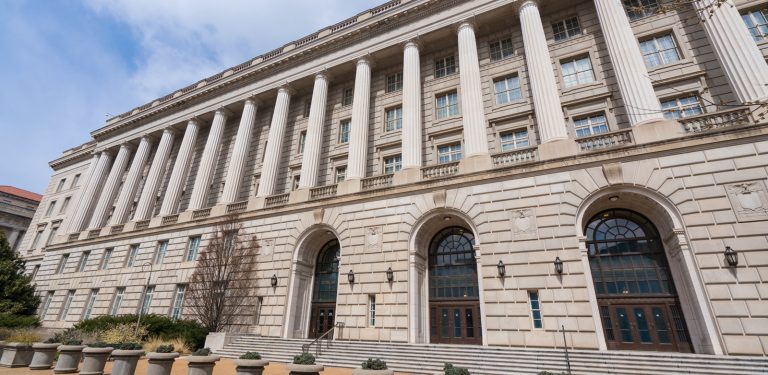
We explore whether the actions of one regulator can affect the efficacy of another regulator. We investigate this idea in the context of environmental enforcement, which is a primary mechanism to combat industrial pollution and climate change. Specifically, we examine whether bank regulatory oversight affects the ability of environmental enforcement to reduce industrial emissions. We predict that bank regulatory oversight can constrain the availability of bank loans, hindering firms' ability to obtain financing for greener technologies and thus mitigating the efficacy of environmental enforcement.
Increased corporation regulation in recent decades has raised the likelihood of regulatory oversight spillovers-the extent to which one agency's interactions with a regulated firm affects firm behaviors under the purview of another agency. We study how such spillovers can affect the mission of a specific regulator-the tax authority-using a measure of firm-specific exposure to fragmented regulation.

Corporate Tax Disclosure
Policies that require, or recommend, disclosure of corporate tax information are becoming more common throughout the world, as are examples of tax-related information increasingly influencing public policy and perceptions. In addition, companies are increasing the voluntary provision of tax-related information. We describe those trends and place them within a taxonomy of public and private tax disclosure.

Borderline Tax Planning
We analyze large-scale establishment-level data to evaluate how county-level commercial property taxes influence business location decisions. We find that the propensity to favor lower-taxed counties is increasing in the tax differential between adjacent counties, and is decreasing in the distance to the border.
The Tax Cuts and Jobs Act (TCJA) of 2017 introduced sweeping changes to individual and corporate taxation. We summarize the major provisions, trace the origins of the Act, and compare it to previous tax changes. We also examine the effects on the government budget, economic activity, and distribution of resources.
UNC Kenan-Flagler’s John Gallemore and co-authors found that, among other things, the complexity of the U.S. tax system has a disproportionately negative effect on small, domestic-owned and private firms.

Real Effects of Tax Audits
Tax audits are a necessary component of the tax system, but policymakers and others have expressed concerns about their potentially adverse real effects. Understanding the causal effects of tax audits has been hampered by lack of data and because typically tax audits are not randomly assigned. We use administrative data from random tax audits of small businesses to examine the real effects of being subject to a tax audit.

Corporate Tax System Complexity and Investment
Effective policymakers must balance the demands of formulating a corporate tax system that spurs economic activity while promoting a “level playing field” across firms. However, tax systems have become more complex over time, increasing firms’ difficulty in understanding and complying with tax regulations. We explore the role of corporate tax system complexity in both objectives, using an international sample and measuring tax system complexity based on the average time firms spend to comply with the country’s tax regulations. Examining both capital and labor investment, we document two key findings. First, firm-level investment is less sensitive to changes in corporate income tax rates when tax system complexity is higher, suggesting that such complexity can undermine the ability of tax policy to stimulate investment. Second, the impact of complexity on the sensitivity of investment to the tax rate varies significantly across firms, with domestic-owned, smaller, and private firms being more negatively affected by tax system complexity.
We examine how tax-induced organizational complexity (“TIOC”), which we define as the organizational complexity that would not exist in a zero-tax world, is associated with executive performance measurement. While these structures can facilitate lower tax burdens, firms need to design their performance measurement systems to encourage executives to manage the associated complexity to avoid potential negative consequences. Using firms’ subsidiary structures in tax havens and other low tax countries to measure TIOC, we document several main findings.

Corporate Tax Enforcement and Business Activity
We examine the consequences of corporate tax enforcement for business activity. Employing two different empirical approaches—a regional design and a firm-level design—we document that corporate tax enforcement is negatively associated with business activity. This association is economically significant and is robust to tests that mitigate concerns regarding endogeneity and measurement.

Corporate Tax Planning and Industry Concentration
Recent research has documented that industry concentration has increased significantly over the past 25 years, with potentially negative consequences for competition, productivity, and social welfare. Some have suggested that greater corporate tax planning by industry leaders, which can provide them with a cost advantage over their competitors, has contributed to this trend. As a result, policymakers are targeting such tax planning to reduce industry concentration.



In Over Our Head: The Debt Ceiling and Taxes
UNC Tax Center Research Director Jeff Hoopes discusses how the tax system figures into the debt ceiling standoff and why we probably won’t see any dramatic increases in taxes anytime soon.